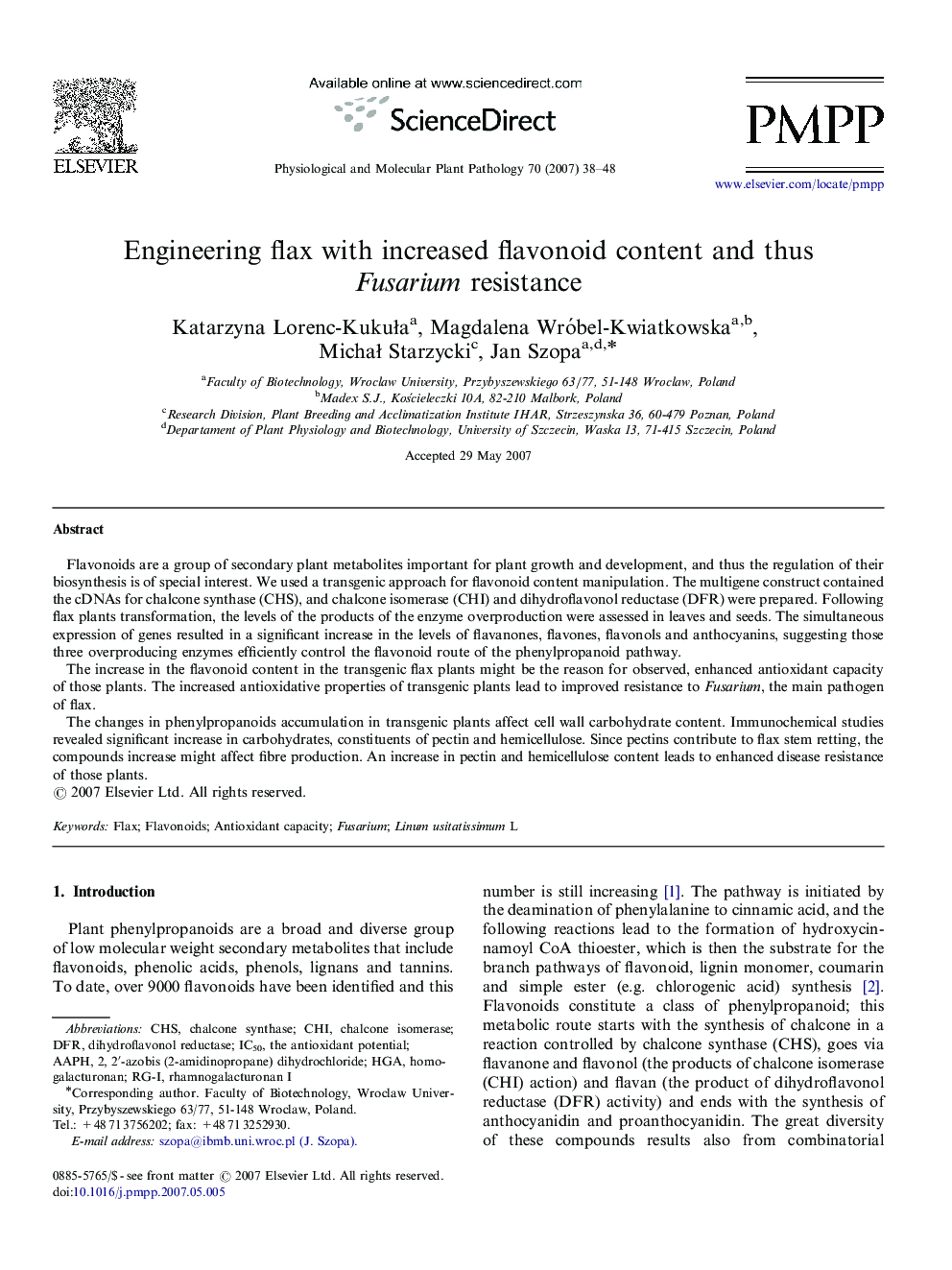| Article ID | Journal | Published Year | Pages | File Type |
|---|---|---|---|---|
| 2836745 | Physiological and Molecular Plant Pathology | 2007 | 11 Pages |
Flavonoids are a group of secondary plant metabolites important for plant growth and development, and thus the regulation of their biosynthesis is of special interest. We used a transgenic approach for flavonoid content manipulation. The multigene construct contained the cDNAs for chalcone synthase (CHS), and chalcone isomerase (CHI) and dihydroflavonol reductase (DFR) were prepared. Following flax plants transformation, the levels of the products of the enzyme overproduction were assessed in leaves and seeds. The simultaneous expression of genes resulted in a significant increase in the levels of flavanones, flavones, flavonols and anthocyanins, suggesting those three overproducing enzymes efficiently control the flavonoid route of the phenylpropanoid pathway.The increase in the flavonoid content in the transgenic flax plants might be the reason for observed, enhanced antioxidant capacity of those plants. The increased antioxidative properties of transgenic plants lead to improved resistance to Fusarium, the main pathogen of flax.The changes in phenylpropanoids accumulation in transgenic plants affect cell wall carbohydrate content. Immunochemical studies revealed significant increase in carbohydrates, constituents of pectin and hemicellulose. Since pectins contribute to flax stem retting, the compounds increase might affect fibre production. An increase in pectin and hemicellulose content leads to enhanced disease resistance of those plants.
